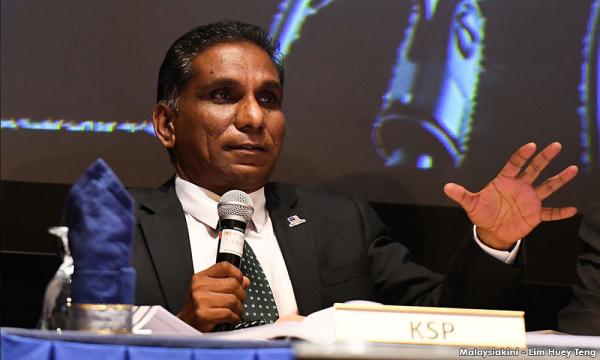COMMENT | As one steps off the escalator at a supermarket in Petaling Jaya, there are makeshift stalls in the walkway leading to the shopping trolley rack. The mobile phone repair and accessory stall cannot be missed. Manning it are two Bangladeshi and business is booming.
Down the aisle, there’s a Pakistani in salwar-kameez pushing his ware – carpets. Further down, is an Indonesian woman selling telukung (head scarves). The murukku stall opposite the money changer is staffed by a Sri Lankan.
In the neighbourhood kopi tiam, two Filipinas are busy on the grill dishing out chicken chops and steaks. Elsewhere, the Burmese cook is frying Hokkien mee.
Yes, Treasury secretary-general Mohd Irwan Serigar Abdullah is right. Foreigners are surviving and thriving in Malaysia. He argued that if Indonesians can make a living here, Malaysians should be more prosperous.
Well said, Sir. But has it ever occurred to you that in each of the instances cited above - and in the case of Indonesian traders in Chow Kit - they are all operating illegally, if not through dubious means.
Foreign workers are allowed into the country through work permits - applied by and issued to employers. Conditions in such permits stipulate their scope of employment. More importantly, nothing in these documents state that they can engage in business or be self-employed.
So, how do they end up behind the wok or engaged in selling shirts and jeans, or for that matter, pisang goreng? Aren’t these activities prohibited? If so, are we to assume that these are illegal immigrants?
Are authorities closing one eye?
So, how come they can apply and get licences? Are the local authorities ‘tutup satu mata’ (closing one eye) and approving such applications? One may argue that they have valid work permits but the caveat and government’s ethos include: No hawker or petty trading licences for foreigners. If they don’t have licences, why aren’t they being shut down?
Therefore, are some local authorities defying government policies and using their powers as little Napoleons to milk the system for their own benefits? Or is the Ali-Baba system flourishing in a different way? Previously, if it was the Malays who were selling or leasing their licences to the Chinese, now the trend is for Malay traders to ‘pajak’ (lease) their licences to their Indonesian brethren.
So if the licence was an issue, it has been ‘kau tim’ (settled) and rules and regulations have been compromised. But how do foreigners occupy and operate in hawker centres that are actually owned by local authorities?...


